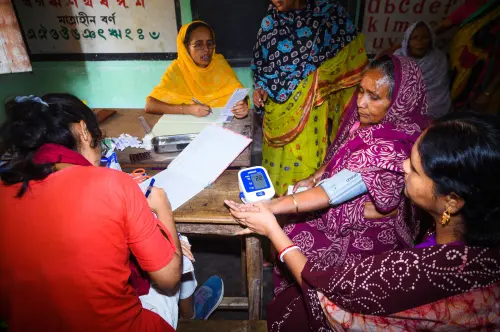This week saw the 10th anniversary of the release of the iPhone. Apple held its annual bombastic show, presenting a host of new products. For the first time the show took place in the Steve Jobs Auditorium in Apple’s new headquarters in Cupertino, California. The new products included an upgraded Apple TV, an Apple Watch that can work without an iPhone, and the new iPhone X dubbed the greatest iPhone upgrade yet. If you missed the full show, here is the full video.
There is much more innovation around the world beyond the new $1,000 iPhone. Jeremy Hsu reported how Rwanda has become a world leader in drone delivery. This technology has the potential to be lifesaving, for example, when delivering blood to someone injured far away from a hospital. According to Keller Rinaudo, CEO and co-founder of the delivery drone company Zipline, Rwanda has been leapfrogging, not just technology but also more advanced economies. “Countries like Rwanda can make decisions fast and can implement new technologies in concert with new regulations fast, so we’re now in a position where the U.S. is trying to follow Rwanda,” said Rinaudo. In early 2018, Zipline will officially kick off the world’s largest delivery drone service in Tanzania.
However, Africa doesn’t yet have the strong internet connectivity necessary to manage such operations. Globally, we are now at a tipping point with more than 3.7 billion people connected—half of the world and equivalent to two-thirds of everyone above 14 years old. Africa is lagging with only 10 percent access, although the continent is catching up fast. Today, most people in the world access the internet through smartphones, which remain too expensive for most people in poor countries. Currently, the average new smartphones costs $250. However, the rise of cheap smartphones, expected to be available for as low as $25, will likely generate a breakthrough in internet adoption. It already happened with the analog cell phones in the early 2000s, which provided the impetus for the rapid growth of telephoning across the Southern Hemisphere.
In other news, politics is heating up in Europe one week ahead the German elections and with French opposition rising against President Emmanuel Macron’s proposed labor market reforms. At the same time, President of the European Commission Jean-Claude’s Juncker held his annual speech to the European Parliament, which was exceptionally upbeat. He suggested to catch the “winds in the sails” to deepen and enlarge the European Union.
American economist Barry Eichengreen is already looking ahead and argues that there is only a narrow path for the fundamental Eurozone reform ahead of the elections of the European parliament in less than two years. Despite German appreciation of the French reform efforts, the two sides still have fundamentally different perspectives on advancing the core of the European project. Eichengreen paraphrased the bargain that Macron offer to the Merkel government: “I’ll undertake deep structural reforms if you agree to modest steps in the direction of fiscal federalism, completing the banking union, and creating a European Monetary Fund.”
Simply put, expect Eurozone challenges to be high on the agenda in 2018.
The Brookings Institution is committed to quality, independence, and impact.
We are supported by a diverse array of funders. In line with our values and policies, each Brookings publication represents the sole views of its author(s).





Commentary
Future Development Reads: Apple’s new iPhone, drone delivery in Rwanda, and politics heating up in Europe
September 15, 2017